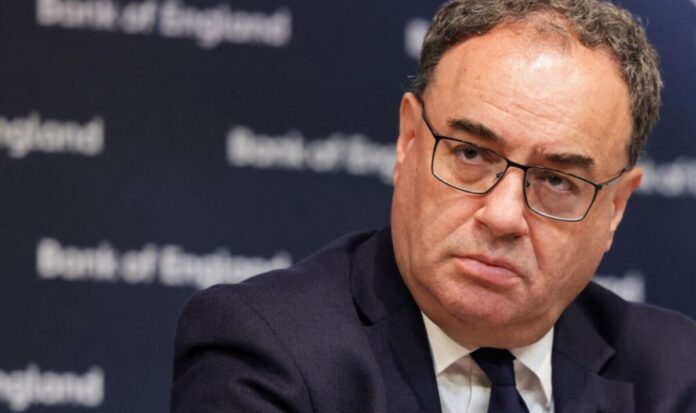Bank of England Governor Andrew Bailey (Image: Getty) Another interest rate rise from the Bank of England risks crashing Britain’s “fragile” economy, a commentator has said. Threadneedle Street will announce its next move on Thursday with a majority of forecasters expecting a 25 basis point rise, taking base rate to 5.25 per cent. Ben Marlow, chief city commentator at the Telegraph , wrote in an op-ed: “That will be of obvious concern to millions, particularly anyone stuck on a variable rate mortgage, or that has maxed out their credit card, or drives a car on hire purchase. “But the truth is it should give everyone a fright. “Another rise risks being a catastrophic mistake. “Having been playing a desperate game of catch-up from the outset, there is now a very real danger that an over-compensating Bank goes too far the other way and crashes the fragile British economy.” Mr Marlow warned that if the economy does crash, then questions will be raised about the Bank’s independence while its governor, Andrew Bailey, will come under pressure to resign before the end of his term in 2028. He accused BoE technocrats of being captured by groupthink with the exit of “maverick” chief economist Andy Haldane as a “terrible blow”. Inflation is falling, but the BoE is expected to raise its base rate (Image: Getty) But some experts believe the latest UK inflation figures have taken some of the pressure off the central bank, as they show a bigger-than-expected slowdown in price rises. Consumer Prices Index (CPI) inflation was 7.9 per cent in June, down from 8.7 per cent in May and the lowest rate since March 2022, according to official figures from the Office for National Statistics (ONS). Food price inflation has also slowed in Britain to 13.4 per cent in July, down from 14.6 per cent in June. It is the third consecutive slowing and its lowest level since December last year, according to the British Retail Consortium (BRC)-Nielsen Shop Price Index. Better news on inflation means rates – which are a tool used by the Bank to bring inflation down to its two percent target – may not need to climb as high as feared. But both the European Central Bank and the US’s Federal Reserve have hiked interest rates to two-decade highs of 3.75 per cent and a range of 5.25-5.5 per cent respectively. A shopper walks down a supermarket aisle (Image: Getty) In Britain, the level could peak at about 5.75 per cent this year, according to economists from ING Economics and Deutsche Bank. Economist Mohamed El-Erian told the BBC on Tuesday there are at least one or two more rate rises to come and these are needed because inflation remains high. He added: “The Bank of England is being asked to carry too much of the burden, and if it carries too much of the burden, there is a risk that by raising interest rates to combat inflation it may tip the economy into recession.” Mr El-Erian continued: “People are feeling the pinch from higher mortgages. Companies are feeling the pinch from higher borrowing costs and global activity is not helping so there is a real risk that we may slip into recession.” On interest rates, he said: “I think they’re going to go up not just on Thursday, but they’ll go up again in September. I don’t think the Bank of England has much of a choice given that it has a mission to deliver two per cent inflation and we are running at almost four times that level. “However, if it continues bearing the burden on its own, there will be collateral damage and unintended consequences to economic growth and to the wellbeing of the most vulnerable segments of our society.”
‘Fragile’ UK economy ‘at risk of collapse’ ahead of plans to raise interest rate
Sourceexpress.co.uk
RELATED ARTICLES


